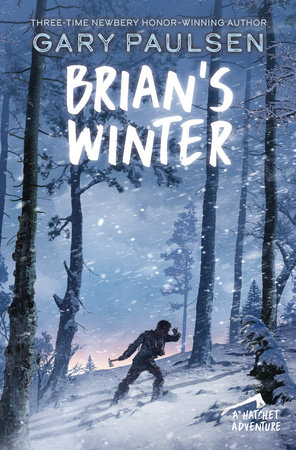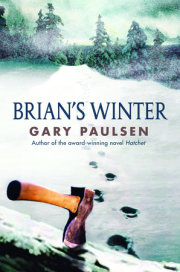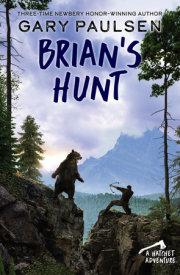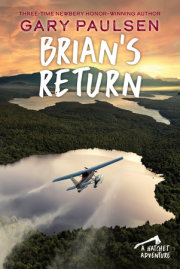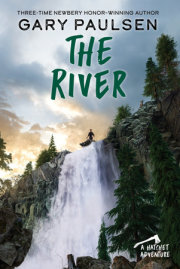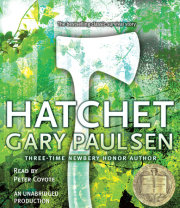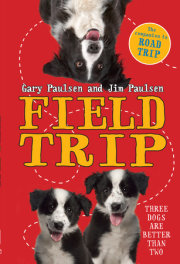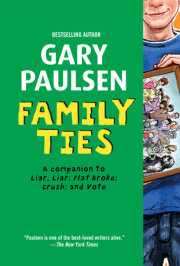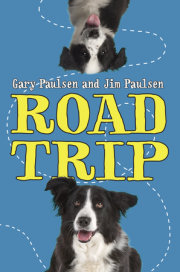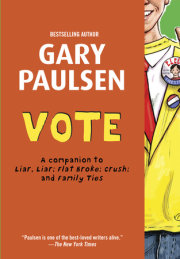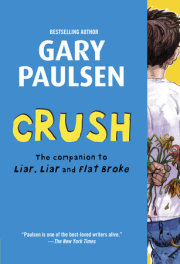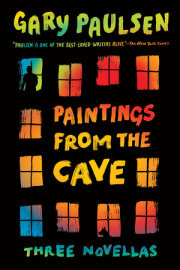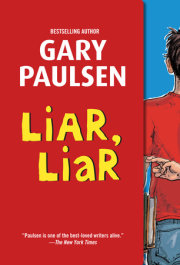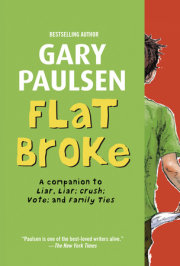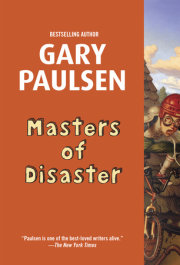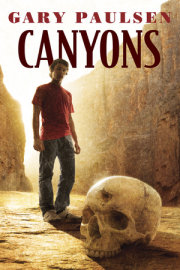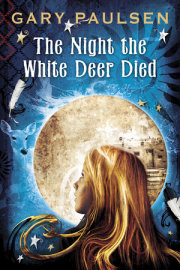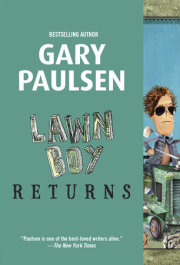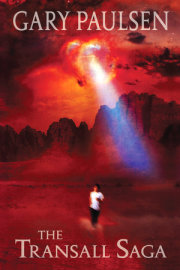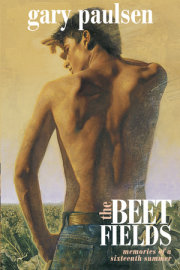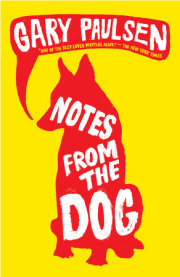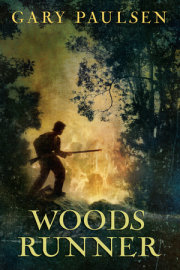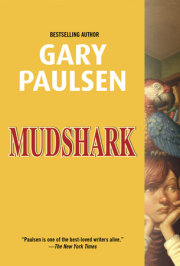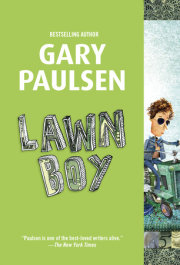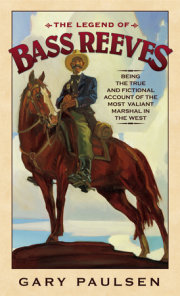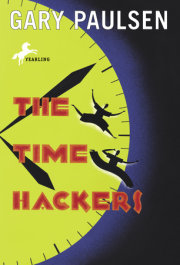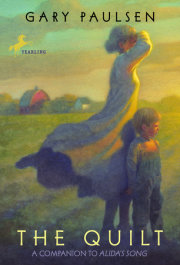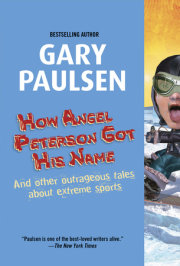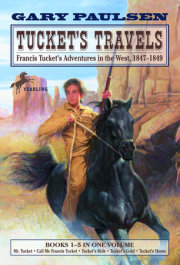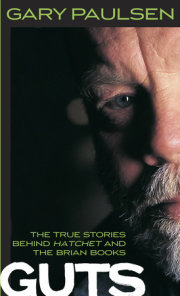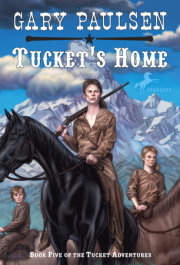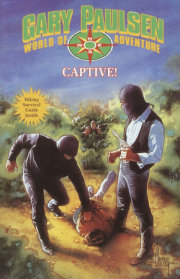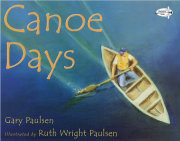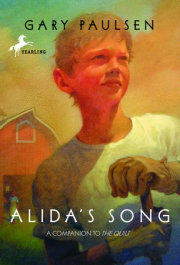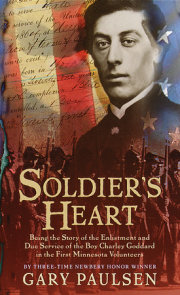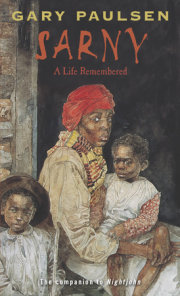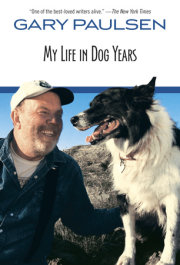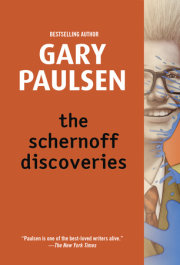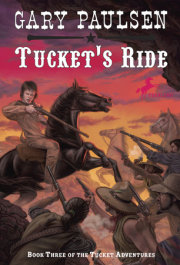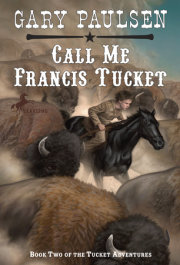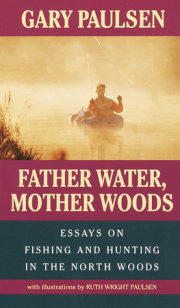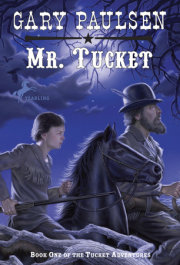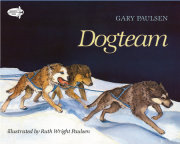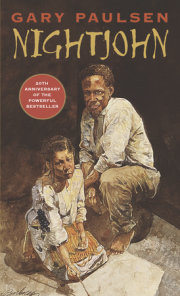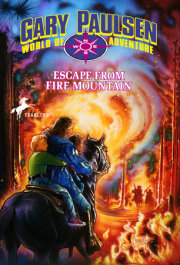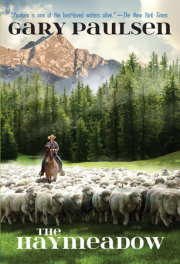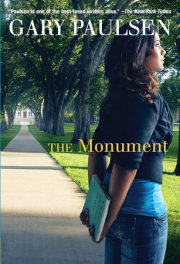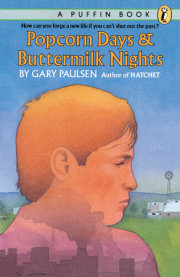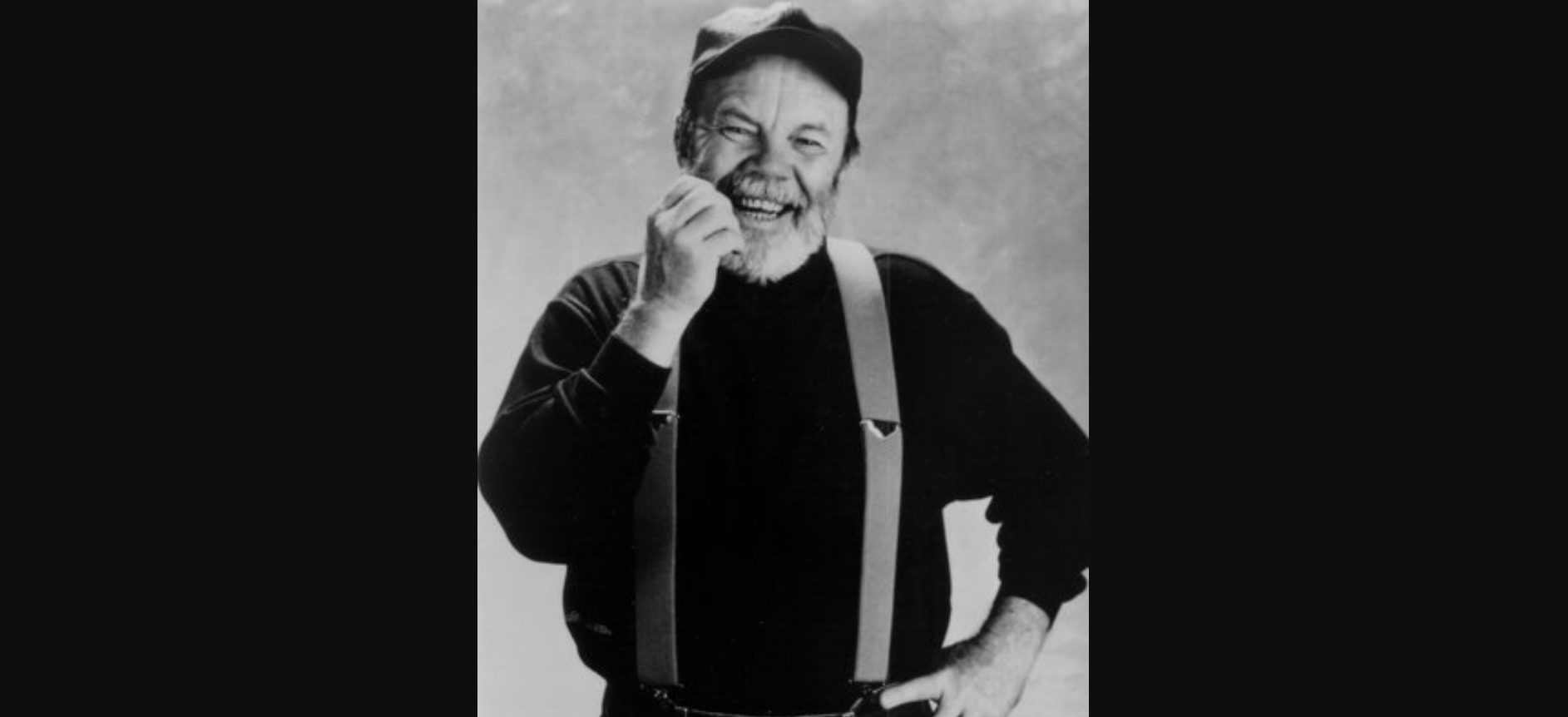For two weeks the weather grew warmer and each day was more glorious than the one before. Hunting seemed to get better as well. Brian took foolbirds or rabbits every day and on one single day he took three foolbirds.
He ate everything and felt fat and lazy and one afternoon he actually lay in the sun. It was perhaps wrong to say he was happy. He spent too much time in loneliness for true happiness. But he found himself smiling as he worked around the camp and actually looked forward to bringing in wood in the soft afternoons just because it kept him out rummaging around in the woods.
He had made many friends--or at least acquaintances. Birds had taken on a special significance for him. At night the owls made their soft sounds, calling each other in almost ghostly
hooonnes that scared him until he finally saw one call on a night when the moon was full and so bright it was almost like a cloudy day. He slept with their calls and before long would awaken if they didn't call.
Before dawn, just as gray light began to filter through the trees, the day birds began to sing. They started slowly but before the gray had become light enough to see ten yards
all the birds started to sing and Brian was brought out of sleep by what seemed to be thousands of singing birds.
At first it all seemed to be noise but as he learned and listened, he found them all to be different. Robins had an evening song and one they sang right before a rainstorm and another when the rain was done. Blue jays spent all their time complaining and swearing but they also warned him when something--anything--was moving in the woods. Ravens and crows were the same--scrawking and cawing their way through the trees.
It was all, Brian found, about territory. Everybody wanted to own a place to live, a place to hunt. Birds didn't sing for fun, they sang to warn other birds to keep away--sang to tell them to stay out of their territory.
He had learned about property from the wolves. Several times he had seen a solitary wolf--a large male that came near the camp and studied the boy. The wolf did not seem to be afraid and did nothing to frighten Brian, and Brian even thought of him as a kind of friend.
The wolf seemed to come on a regular schedule, hunting, and Brian guessed that he ran a kind of circuit. At night while gazing at the fire Brian figured that if the wolf made five miles an hour and hunted ten hours a day, he must be traveling close to a hundred-mile loop.
After a month or so the wolf brought a friend, a smaller, younger male, and the second time they both came they stopped near Brian's camp and while Brian watched they peed on a rotten stump, both going twice on the same spot.
Brian had read about wolves and seen films about them: and knew that they "left sign," using urine to mark their territory. He had also read--he thought in a book by Farley Mowat--that the wolves respected others' territories as well as their own. As soon as they were well away from the old stump Brian went up and peed where they had left sign.
Five days later when they came through again Brian saw them stop, smell where he had gone and then spot the ground next to Brian's spot, accepting his boundary.
Good, he thought. I own something now. I belong. And he had gone on with his life believing that the wolves and he had settled everything.
But wolf rules and Brian rules only applied to wolves and Brian.
Then the bear came.
Brian had come to know bears as well as he knew wolves or birds. They were usually alone--unless it was a female with cubs--and they were absolutely, totally devoted to eating. He had seen them several times while picking berries, raking the bushes with their teeth to pull the fruit off--and a goodly number of leaves as well, which they spit out before swallowing the berries--and, as with the wolves, they seemed to get along with him.
That is to say Brian would see them eating and he would move away and let them pick where they wanted while he found another location. It worked for the bears, he thought, smiling, and it worked for him, and this thinking evolved into what Brian thought of as an understanding between him and the bears: Since he left them alone, they would leave him alone.
Unfortunately the bears did not know that it was an agreement, and Brian was suffering under the misunderstanding that, as in some imaginary politically correct society, everything was working out.
All of this made him totally unprepared for the reality of the woods. To wit: Bears and wolves did what they wanted to do, and Brian had to fit in.
He was literary awakened to the facts one morning during the two-week warm spell. Brian had been sleeping soundly and woke to the clunking sound of metal on rock. His mind and ears were tuned to all the natural sounds around him and there was no sound in nature of metal on stone. It snapped him awake in midbreath.
He was sleeping with his head in the opening of the shelter and he had his face out and when he opened his eyes he saw what appeared to be a wall of black-brown fur directly in front of him.
He thought he might be dreaming and shook his head but it didn't go away and he realized in the same moment that he was looking at the rear end of a bear. No, he thought with a clinical logic that surprised him--I am looking at the very
large rear end of a very
large bear.
The bear had come to Brian's camp--smelling the gutsmell of the dead rabbit, and the cooking odor from the pot. The bear did not see it as Brian's camp or territory. There was a food smell, it was hungry, it was time to eat.
It had found the pot and knife by the fire where Brian had left them and scooped them outside. Brian had washed them both in the lake when he finished eating, but the smell of food was still in the air. Working around the side of the opening, the bear had bumped the pan against a rock at the same moment that it had settled its rump in the entrance of Brian's shelter.
Brian pulled back a foot. "Hey--get out of there!" he yelled, and kicked the bear in the rear.
He was not certain what he expected. Perhaps that the bear would turn and realize its mistake and then sheepishly trundle away. Or that the bear would just run off.
With no hesitation, not even the smallest part of a second's delay, the bear turned and ripped the entire log side off the shelter with one sweep of a front paw and a moist
"whouuuff" out of its nostrils.
Brian found himself looking up at the bear, turned now to look down on the boy, and with another snort the bear swung its left paw again and scooped Brian out of the hollow of the rock and flung him end over end for twenty feet. Then the bear slipped forward and used both front paws to pack Brian in a kind of ball and whap him down to the edge of the water, where he lay, dazed, thinking in some way that he was still back in the shelter.
The bear stopped and studied Brian for a long minute, then turned back to ransacking the camp, looking for where that delicious smell had come from. It sat back on its haunches and felt the air with its nostrils, located another faint odor stream and followed it down to the edge of the water where the fish pool lay. It dug in the water--not more than ten feet from where Brian now lay, trying to figure out if his arms and legs were still all attached to where they had been before--and pulled up the rabbit skull, still with bits of meat on it, and swallowed it whole. It dug around in the water again and found the guts and ate them and went back to rummaging around in the pool, and when nothing more could be found the bear looked once more at Brian, at the camp, and then walked away without looking back.
Other than some minor scratches where the bear's claws had slightly scraped him--it was more a boxing action than a clawing one--Brian was in one piece. He was still jolted and confused about just exactly which end was up, but most of all he was grateful.
He knew that the bear could have done much more damage than it had. He had seen a bear tear a stump out of the ground like a giant tooth when it was looking for grubworms and ants. This bear could just as easily have killed him, and had actually held back.
But as the day progressed Brian found himself stiffening, and by the time he was ready for bed his whole body ached and he knew he would be covered with bruises from the encounter.
He would have to find some way to protect himself, some weapon. The fire worked well when it was burning, but it had burned down. His hatchet and knife would have done nothing more than make the bear really angry--something he did not like to think about--and his bow was good only for smaller game. He had never tried to shoot anything bigger than a foolbird or rabbit with it and doubted that the bow would push the arrow deep enough to do anything but--again--make the bear really mad.
He bundled in his bag that night, the end of the two weeks of warm weather. He kept putting wood on the fire, half afraid the bear would come back. All the while he tried to think of a solution.
But in reality, the bear was not his primary adversary. Nor was the wolf, nor any animal. Brian had become his own worst enemy because in all the business of hunting, fishing and surviving he had forgotten the primary rule: Always,
always pay attention to what was happening. Everything in nature means something and he had missed the warnings that summer was ending, had in many ways already ended, and what was coming would be the most dangerous thing he had faced since the plane crash.
An Excerpt from Brian's Winter He would have to find some way to protect himself, some weapon. The fire
worked well when it was burning, but it had burned down. His hatchet and
knife would have done nothing more than make the bear really angry--something
he did not like to think about--and his bow was good only for smaller
game. He had never tried to shoot anything bigger than a foolbird or rabbit
with it and doubted that the bow would push the arrow deep enough to do
anything but--again--make the bear really mad.
He bundled in his bag that night, the end of the two weeks of warm weather.
He kept putting wood on the fire, half afraid the bear would come back.
All the while he tried to think of a solution.
But in reality, the bear was not his primary adversary. Nor was the wolf,
nor any animal. Brian had become his own worst enemy because in all the
business of hunting, fishing and surviving he had forgotten the primary
rule: Always,
always pay attention to what was happening. Everything
in nature means something and he had missed the warnings that summer was
ending, had in many ways already ended, and what was coming would be the
most dangerous thing he had faced since the plane crash.
Copyright © 1996 by Gary Paulsen. All rights reserved. No part of this excerpt may be reproduced or reprinted without permission in writing from the publisher.





